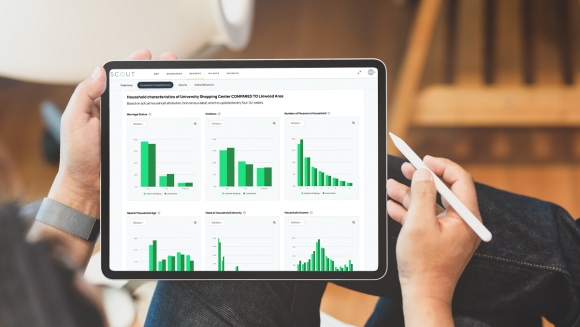The field of consumer analytics offers tremendous potential to healthcare organizations. As the industry pivots to a consumer-focused business model, this type of analysis offers the opportunity to understand who patients really are as consumers and design business strategies that put the consumer first. The applications of this information range from marketing to real estate to operations.
While the benefits of consumer analytics are appealing, many healthcare organizations are concerned about the security risks associated with sharing patient information with the platforms and firms who provide the analysis. Even the most robust data security practices aren’t enough to calm the fears of some decision makers. For other organizations, the problem is that they lack the data infrastructure needed to pull the relevant information quickly and easily, making data transfer a headache.
If your organization is unable to share patient information, does that mean you cannot use consumer analytics? After all, the analytics must be based on something, and patient data is typically the foundation of the analysis.
Contrary to popular belief, the answer is actually no, you do not have to share patient data to get started using consumer analytics. There’s a growing list of alternative products that can give your organization access to similar insights without requiring any of your proprietary information. These alternative products are designed based on observations of typical patients for various service lines, facility types, and markets rather than on analysis of your organization’s specific patient base.
In this blog post, we’ll explore the pros and cons of a patient data-free approach to consumer analytics.
Pro: No Privacy Concerns
For many organizations, eliminating privacy concerns is a compelling reason to choose the patient data-free approach to consumer analytics. Getting approval on the transfer of patient data in addition to the required security audits as part of the purchasing process is much easier when there’s no sharing of patient information involved.
Pro: Get Started Faster
Because these products don’t require any of your own data, you can skip the data transfer and verification process. Additionally, the products are pre-built, so getting access is just a matter of deploying the tools to the appropriate user interface.
Pro: Get Directional Answers
These products may not be tailored to your unique patient base, but they still provide informed answers to important business questions based on trends observed in the healthcare industry. Which areas in your market offer solid potential for primary care clinics? Which households are likely to be interested in news of an urgent care clinic opening? Pre-built site scoring and marketing models can give you insights to guide your decisions in those areas.
Pro: Typically Less Expensive
Choosing a patient data-free version of consumer analytics is often more affordable than a custom version, depending on the scale of that analysis. That’s a win for departments on tight budgets or those who want to begin with a “starter package” before scaling up to a fully custom solution at a later date.
Con: Typically Won’t be Tailored to Your Unique Organization’s Needs
The main advantage to basing your consumer analytics on your own data is that the answers are tailored to your unique patient base, organization, and markets. The answers you receive aren’t the answers every other healthcare organization receives; they are your answers based on your actual patients and their behaviors. Sharing patient data also allows you to slice the data different ways to identify patterns and study specific business questions. When you don’t share patient data, you lose most of the ability to customize the analytics.
Con: Requires Education to Ensure Your Stakeholders Interpret Appropriately
Consumer analytics that are not based on your own patient data are based on well-educated assumptions and observations about the healthcare industry as a whole. To avoid misinterpreting the results, it’s important for your stakeholders to understand that 1) there are assumptions in the model and 2) what some of the primary assumptions are.
The Bottom Line
Consumer analytics products are no longer restricted to healthcare organizations who are able to share patient data for analysis. There are viable product options on the market that use alternative data sources to provide directional answers to real estate, marketing, and operations questions.
Buxton offers a full suite of consumer analytics products for the healthcare industry, including patient data-free options. Interested in learning more? Contact us for an introductory call to discuss your needs and the products that are the right fit for you.


